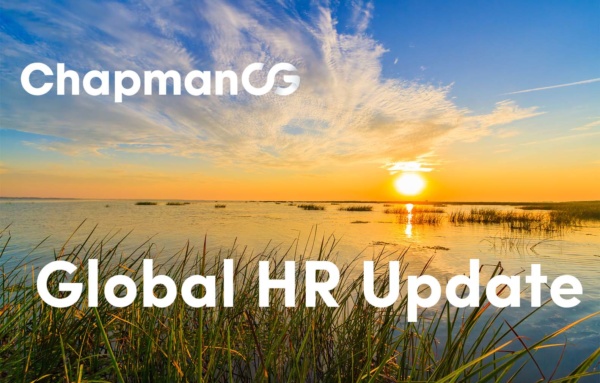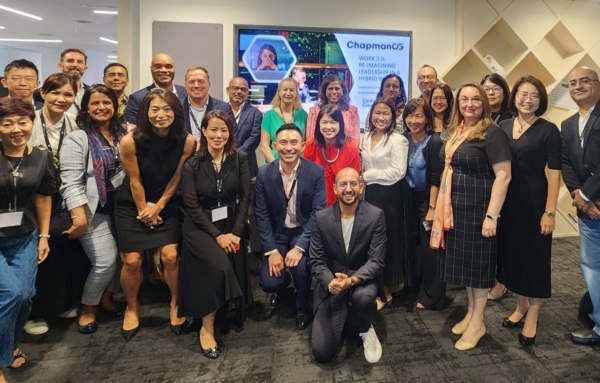The HR profession was conceptualised in the late 19th century to look after worker’s well-being as it was affecting productivity during the industrial revolution. By the early 20th century, the near-simultaneous rise of trade unions and personnel management departments within companies laid the groundwork for the establishment of the formal human resources discipline.
The world of work has changed significantly over the years, and then we have COVID. The events of 2020 have changed the way we interact and work in the most profound and pressing way. The enormity and pace of these changes have elevated the significance of HR’s role within organisations as employees and business leaders are turning to their HR professionals for advice on how to navigate in the fastest-paced changing environment since the global recession of 2008.
All the talk of ‘seat at the table’ is over – HR professionals are leading the charge.
Josh Bersin
To be future-ready and a successful change agent, we believe HR professionals need to be equipped with the following skills, attributes and mindset:
Agile Mindset
Joey Price, CEO of Jumpstart HR says, “HR leaders are being forced to don new identities that are agile, tech, and data-oriented and readily embracing change. That battle will be won in the mind of the professional before it can be won within an organisation.”
To stay relevant in this ever-changing environment, HR leaders need to re-imagine values and beliefs about the profession, and its relationship with other stakeholders in the organisation.
Strategic Advisory
“Throughout much of history, HR professionals have expected the organisation to define business needs, and then HR would respond by designing and implementing competencies and capabilities,” says Wayne Brockbank, Clinical Professor of Business at Michigan Business School.
The best way to cope with an ever-changing environment is to be prepared before changes happen. Therefore, HR leaders must shift away from being reactive to business needs, to being proactive to shape business needs and this is should lead to HR having a “seat at the table”.
At the Forefront of Employee Communications and Engagement
Apart from having the employee communications strategy well-coordinated, clear and consistent, employees must feel that communication is two way and that they are part of the conversation. In addition, the use of unconventional communication channels such as social media, workflow apps and after-hour communication will help employers become more effective when communicating to their employees, especially the new generations of employees.
When it comes to communication itself, it should go beyond simply passing of words, but rather an interaction equipped with emotion, trust, sensitivity and inclusiveness. What is more important is that HR leaders need to follow up with issues and/or ideas identified during the communication process to make sure that communication is not a dead end.
Be Tech-Savvy
According to Dave Ulrich, Rensis Likert Professor at the University of Michigan Ross School of Business, “People analytics skills is not the key competence, but HR needs to be able to ‘do’ analytics to deliver business results.” He explains: “HR dashboards, scorecards, and insights are less important than creating information asymmetries that help a business win in the marketplace.” Eventually, talent, leadership and organisation analytics need to relate to tangible business outcomes.
Many tech-savvy HR leaders are outperforming their peers who have greater experience and tenure. This is because they have learnt how to use Artificial Intelligence and machine learning to get the best data possible and are making more effective decisions than their peers as a result. Therefore, it is critical for HR leaders to learn, unlearn and relearn to stay ahead.
HR leaders Do Not Need to be a Jack of all Trades
HR leaders know they need to upskill in areas such as analytics, communications and tech, as they transition towards contemporary people-driven processes in today’s world of work. But they do not need to be experts in everything because it is building capabilities for skills across their HR team that is essential.
The HR team of tomorrow, who can execute these skills across the board and with the HR director of the future, who can choreograph and drive people decisions with commercial acumen and demonstrating a tangible commercial value as a result, will collectively create an unparalleled employee experience and enabled the organisation to be ready for future changes in the world and world of work.
Finally, we like to wish a very Happy International HR Day to all our HR friends who worked tirelessly to keep their employees and workplaces safe and healthy.


 Andrea Merrigan
Andrea Merrigan Katherine Qu
Katherine Qu Vargin Yeke
Vargin Yeke Steve Brown
Steve Brown Orelia Chan
Orelia Chan Stanislav Medvedev
Stanislav Medvedev Fleur Daniell
Fleur Daniell Tim Rayner
Tim Rayner Nicola Hasling
Nicola Hasling Stefanie Cross-Wilson
Stefanie Cross-Wilson


